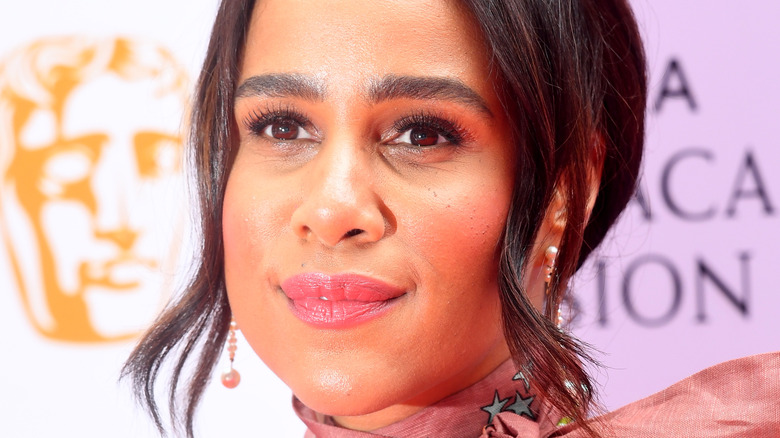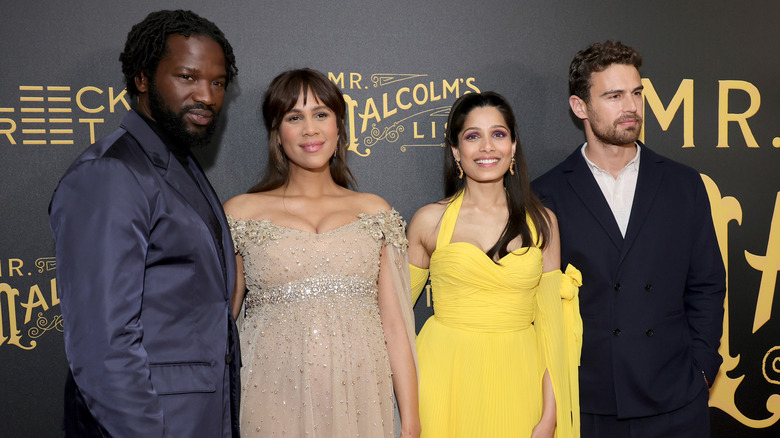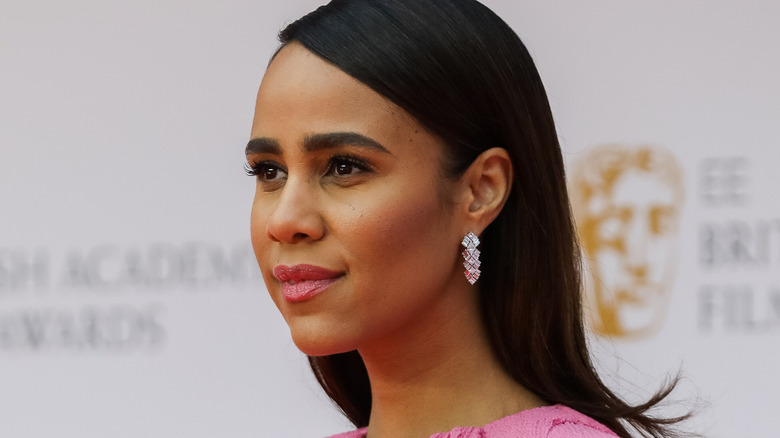Zawe Ashton On Challenging The Status Quo As A Woman Of Color In Film - Exclusive
Women in all walks of life have spent decades upon decades, generations upon generations, fighting for equal rights. In the U.S., women weren't granted the right to vote until 1920, were not allowed to get a credit card by themselves until 1974, and women who served in the United States Senate couldn't wear pants on the floor until 1993 – the list goes on and on.
Anyone who is remotely clued into societal expectations and normalities, of course, knows that women of color face even more severe setbacks and to this day are marginalized, exploited, and treated unjustly under the law. With so much heartache intertwined in the identities of women across the country on a daily basis, it's no wonder many of us turn to films and our favorite series to bring a sense of lightness and calm to an otherwise troubling existence. But films are not the racially diverse, gender-defying environments we may assume.
Ahead of the genre-defying film release of "Mr. Malcolm's List" — a historic period drama that features a cast predominantly made up of actors of color — we sat down with leading lady Zawe Ashton, who brings the titular character of Julia to life. During our discussion, Ashton was quick to point out just how infrequently actors of color are cast in multifaceted roles, telling us that it's disappointing to see a bland landscape and far fewer opportunities as a woman of color. With so much on the line these days, we had to dive further into the important topic of representation on screen and challenging the status quo.
Zawe Ashton reflects on defying racial expectations on-screen
While progress has been made in areas of societal life when it comes to race and gender — in the workplace, in relationships, and on screen – there are still many battles to be fought. When we sat down with Zawe Ashton (who is newly pregnant!) to discuss her new film, "Mr. Malcolm's List," she highlighted the importance of representation not just in film casting but also in character development.
"I feel especially proud of this because the protagonists, like the Julias, like anti-heroes, are of color and they're coming up against the romantic leads who are also of color," Ashton explained. "It's not just representing one type of character or one personality type. Everyone is coming up against each other and creating the emotional landscape."
While the on-screen diversity that "Mr. Malcolm's List" shows is well-needed and deserved, Ashton told us that the range we see in the film is certainly not always the case.
"[Diversity] isn't something that's always been given to you as the heart of the story, as an actor of color in this genre, sadly," she said. "We're seeing that finally changing, which is good."
The actor speaks to her character's challenge of societal norms
For so long, actors of color have been typecast into roles that Hollywood deemed "acceptable." As Zawe Ashton highlighted, times are changing, and it's thanks to characters like Julia in "Mr. Malcolm's List" that the envelope is being pushed, both when it comes to race and gender.
"I loved Julia's courage of her convictions and her modernity in that space. She's challenging the status quo in so many different ways, especially when it comes to the expectations on women, and love, and romance, and matching up, and domestic life," Ashton told us. "She really is a very modern character."
After highlighting incredibly poignant lines uttered by Julia in the film that expose society's still-held expectations, Ashton commented on the dialogue further, telling us, "When you hear those lines said in this genre, they really ping out. You can relate them quite easily to today, and that was a real pleasure."
Here's to more diverse women on screen, now and in the future.
Bleecker Street is now playing exclusively in theaters.


